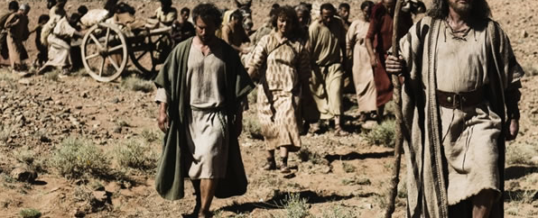
On this Feast of the Body and Blood of Christ, a strange thing is happening, both in the readings and in our lives. As you get older and you grow in your knowledge of who Christ is more and more, you simultaneously grow in self-knowledge. This true self, who you are in God, and not who others want you to be or some persona of who you would like to be, was given at conception and takes a lifetime to discover. Discovering the true God and discovering the true self become the same pursuit in life until you are able to say as St. Paul says, “It is no longer I who live but Christ who lives in me.” That’s mature spirituality, when the lines are so blurry that you no longer can tell the difference between your life and the life of the Divine living in you. That is the role of mature religion. Religion come from the prefix “re” means “again” and “ligion” which means “link” or “connect.” So, the role of religion is to re-connect us to the true God and re-connect us to our true selves. Immature religion, and there is lots of it around, lets us create false gods and false selves all the time. So, let us see how today’s readings shed light on our pursuit of the true God and the true self.
In the 1st reading, from the Book of Deuteronomy (8:2-3, 14-16), Moses, some 1300 years before Jesus, is on the cusp of leading the Hebrews into the Promised Land after 40 years of wandering in the desert. They had left Pharaoh, they had left the land of slavery, and now they were on the verge of entering their own country where they could worship the one, true God in freedom. Wow. What excitement! But Moses, speaking on God’s behalf, interrupts the excitement with a warning. He tells them not to forget that God brought them through these 40 years wandering through the desert, that God fed them with manna, that God gave them water from the rock, that God brought them out of slavery, and that God led them past the dangers of poisonous snakes and scorpions. Why did God do this? “To humble you, and to test you, and in the end to do you good.” Moses was afraid that once the Hebrews were in their own land and feeling free and independent, they would think that they did it. They would think that they were the reason for their own accomplishments. The truth is their accomplishments back then, similar to our accomplishments here and now, are done in us and through us much more than by us.
St. Paul says in the 2nd reading (1 Cor. 10:16-17),“We all partake of the one bread.” In other words, while we should take pride in our personal accomplishments, just know that we didn’t do it all from our own, personal resources. We were all partaking of the one bread; we were all drawing from the same table of nourishment. Usually we only get this truth, that we drawing nourishment and life from God, when our personal resources run dry, or our health breaks down, or our finances collapse, or our marriage fails, and there’s nothing left in our little bag of tricks to fix it. It is from this place of rock bottom that we finally realize that every breath we took during good times, bad times, and every time in between, was given to us from beyond ourselves. We were partaking of the one bread. We were not nourishing ourselves; we were being nourished.
And then we get to the Gospel (Jn. 6:51-59) where Jesus says, “If you eat this bread (meaning, if you take my life into your life) you will live forever.” In a sense he is saying you are indestructible. If you live from a momentary identity, from a persona that you give to yourself or from identities others give you, then that is what dies when you die. That is the false self; it never really existed. It is smoke and mirrors and nothing more. When Thomas Merton, the great spiritual writer and Trappist monk, was ask what he thought heaven would be like, he said, “I really don’t know much about heaven, but what I do know is that there won’t be much of me there.” Thomas Merton thought that much of his life, and much of our lives, was made up of the false self, and the false self has no place in heaven. When Jesus says, “Eat this bread and you will live forever,” he’s saying, “Find yourself in me, and this will not pass or change or die. Eat this food as your primary nutrition, and you are indestructible.” Who you are in God is who you forever are. In fact, that’s all you are, and it’s more than enough. Everything else is passing away. Reputations, titles, and roles do not determine our identity.
So, maybe our primary problem is not sin per se but forgetfulness. We forget who we most truly are and live from lesser identities. We forget we are the Body of Christ, the only Body of Christ most people in this world will ever know. St. Teresa of Avila probably said it best when she said, “Christ has no body now but yours, no hands but yours, no feet but yours. You are the eyes through which Christ’s compassion must look out on the world. Yours are the feet which He goes about doing good. Yours are the hands with which he is to bless us now.”
Fr. Phil Mulligan
JUN
2020

About the Author: